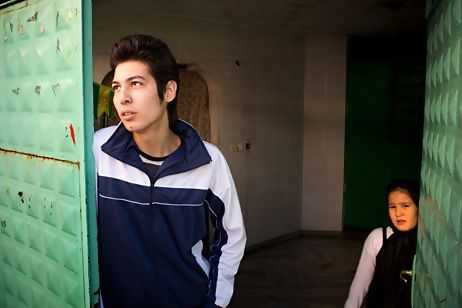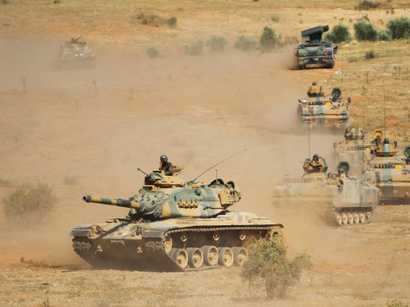ISTANBUL // A dark and damp basement of an Istanbul mosque is home to about 30 people who have nowhere else to go, victims of a new and largely unnoticed refugee crisis in Turkey.

Most of the inhabitants of the basement, which used to serve as the mosque’s morgue, are Afghan refugees. They are new arrivals, not from Afghanistan directly, but from Turkey’s eastern neighbour Iran, where conditions for refugees have started to worsen.
There are about 20,000 Afghan refugees in Turkey, most of whom have arrived in recent months, according to the Ankara office of UNHCR, the UN refugee agency.
At the mosque in the neighbourhood of Zeytinburnu, just outside the ancient city walls, a local charity has been providing shelter, food and clothes for the Afghans and several Iranians, who have also moved into the basement.
“What else can we do,” Kiyaz Aras, the deputy chairman of the charity that runs the mosque, said this week. “They would be out on the street otherwise.”
One of the refugees, Sajjad Ramizani, 18, son of a family of Afghan refugees in Iran, said his parents decided to send him to Turkey with his grandmother and an uncle half a year ago.
He and other refugees say there is increasing pressure on Afghans in Iran to leave, as Tehran is facing growing economic difficulties, caused in part by western sanctions in response to Iran’s nuclear programme.
Mr Ramizani’s parents remain in Iran. “But they want to come as soon as they have the money,” he said.
In the past two years, efforts to help refugees in Turkey have focused on the region bordering Syria, where close to 180,000 Syrians are sheltered in government-run camps. But in the shadow of the Syrian crisis, the number of Afghan refugees in Turkey has started to rise dramatically.
Only 7,000 Afghans are officially registered, the UN agency said in a written response to questions this week. “As a result of a sharp increase from June 2012 onwards an additional 13,000 have approached UNHCR.”
Most of the Afghans arriving here come not straight from their homeland, but from Iran, home to around 820,000 Afghan refugees.
The UNHCR said the increase was “due to many factors, including the fear of Afghans for what will happen in Afghanistan after the international troops pull out in 2014 and the economic situation in Iran which makes it very difficult for many Afghans in Iran to be able to survive”.
Abdulriza Sagagi, a spokesman for the Iranian embassy in Ankara, denied that his country was pushing the Afghans out.
“There is no pressure whatsoever,” Mr Sagagi said by telephone. He suggested that such complaints came from Afghans who wanted to improve their chances of being accepted by a western country.
But refugees, such as Mr Ramizani, said the pressure was real.
Born into a family of Afghan refugees in the Iranian city of Isfahan, Mr Ramizani said his family was suddenly confronted with a hostile attitude by Iranian authorities last year.
“We had a shop there, and we had a car,” Mr Ramizani said. “Then the police came and closed down our shop and took away our car.”
Mr Ramizani now works as a helper at a car park in Istanbul and tries to keep in touch with his parents by calling them from one of the phone shops in Zeytinburnu that advertise cheap telephone calls to Afghanistan, Iran and central Asian countries.
Up the road from the mosque, Aci Nusrat, another newly-arrived Afghan refugee, was taking a walk in the warm February sun.
Mr Nusrat, 60, fled Afghanistan shortly after the Soviet invasion of 1979 and settled in the Iranian city of Shiraz, where he worked as a teacher in a karate school. Then, about two months ago, the life he had known for 30 years came to an abrupt end.
“All of a sudden, they refused to give new papers to Afghans,” he said about Iranian authorities. Mr Nusrat and his family of seven decided to go to Turkey, which they reached after a trek over the mountains. After arriving in Zeytinburnu, his son found work at a construction company so the family can afford its own apartment.
Since coming to Istanbul, Mr Nusrat, whose crushing handshake betrayed the lifelong athlete, has been trying to keep fit by working out on gym machines in a public park on the shore of the nearby Sea of Marmara. Although he entered Turkey illegally and lacks valid identity papers, he said he was not concerned about being extradited from Turkey.
“The police here are good, they are bad in Iran,” he said. “I want to stay here.”
Turkey does not grant refugee status to Afghans, but agrees to let them stay in the country while UNHCR officials try to find countries willing to take them in, a process that can take years.
Taner Kilic, director of the Association for Solidarity with Refugees (Multeci-Der), an NGO, said Afghan refugees in Turkey had to wait up to four years before getting their first interview at the UNHCR to talk about a possible move to another country.
via Afghan refugees leave Iran for Turkey – The National.






